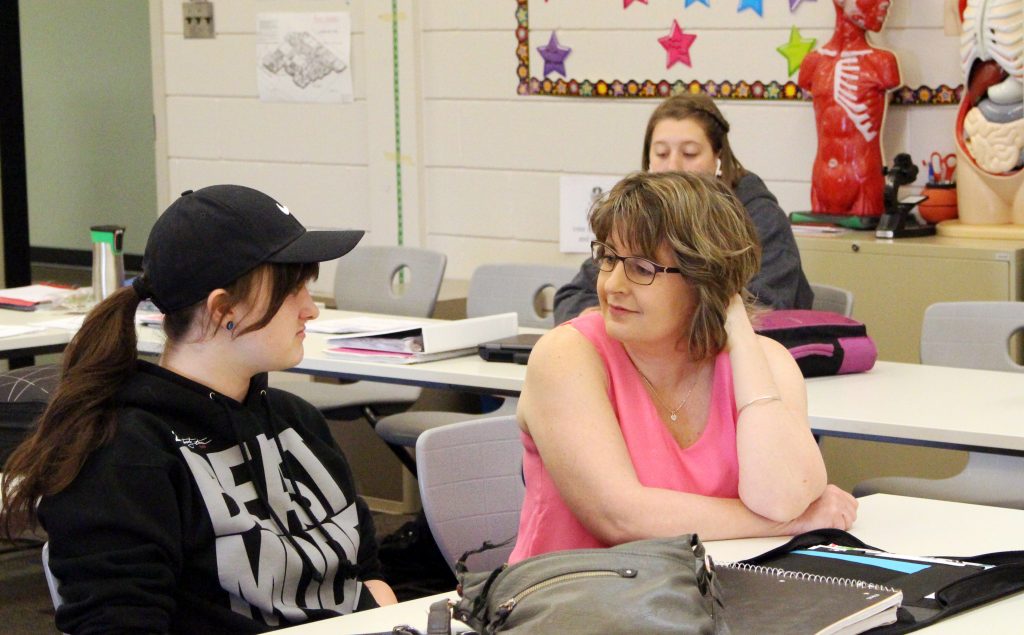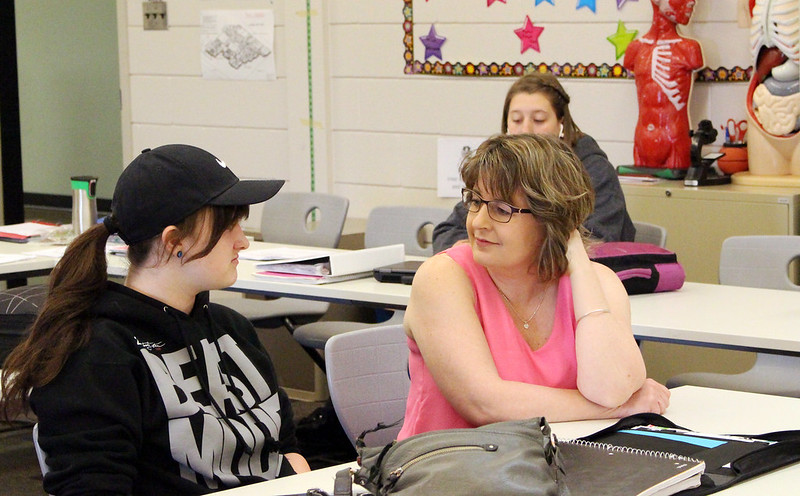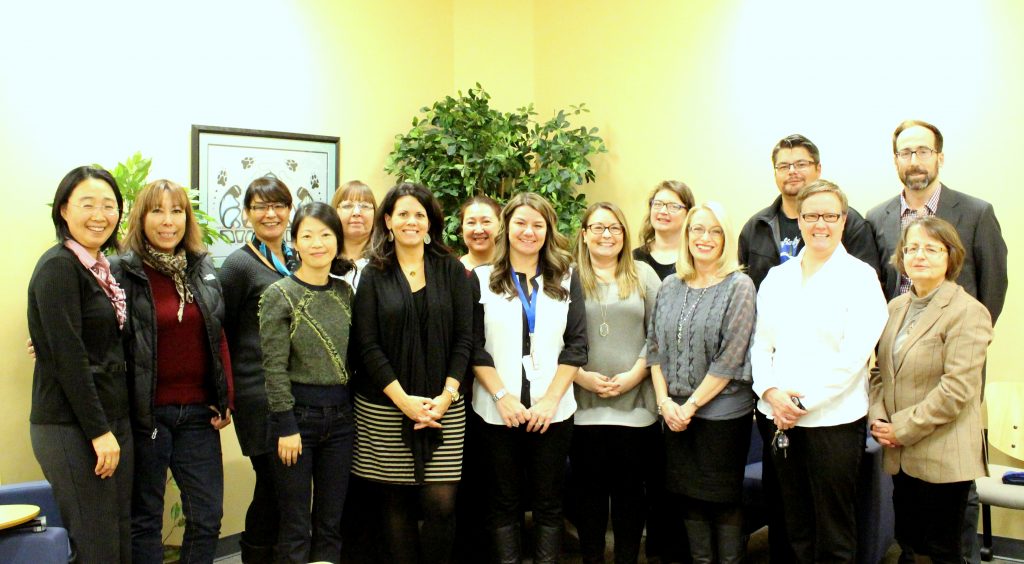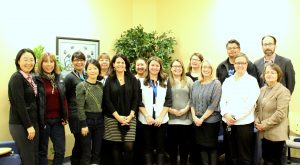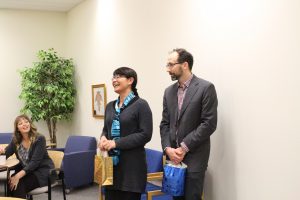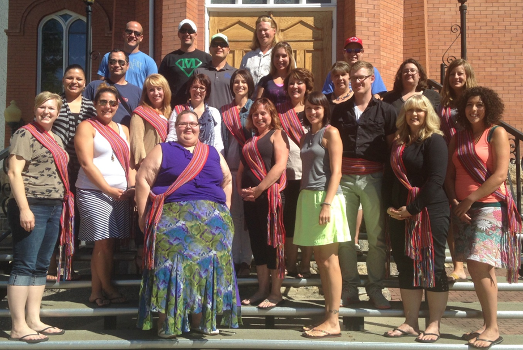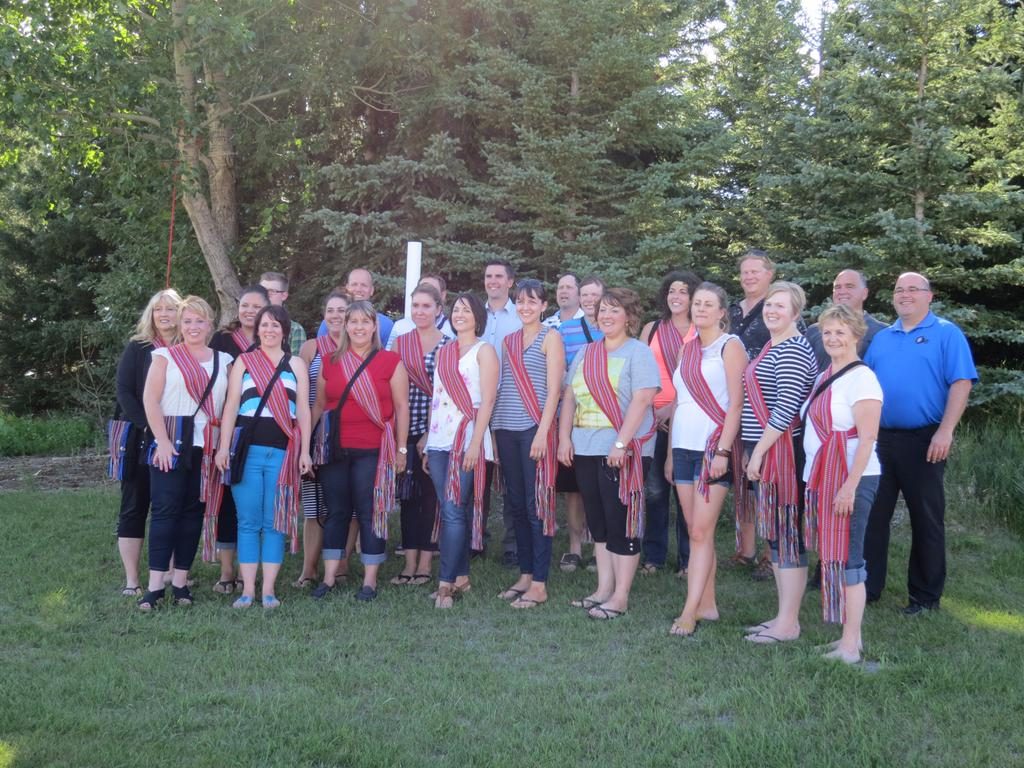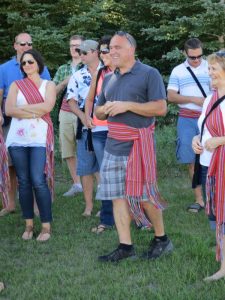By James Oloo, Research Coordinator, Gabriel Dumont Institute
It seems like yesterday when 25 individuals gathered together at Gabriel Dumont Institute in Prince Albert to start their first day of a two-year Community-based Master of Education class. Exactly two years later, the same individuals gathered at Prince Albert Golf and Curling Club to celebrate the completion of their studies.
Congratulations to our third graduating cohort, the Class of 2019, which includes Joanne Berg; Jennifer Brown; Caitlin Crawford- Morley; Suzanne DePeel; Heather Carter; Darcie Eschyschyn; Amanda L. Fisher; Joel Hamilton; Tristan Hayunga; Elisa Hryniuk; Leanne Jordan; Joseph Kaufhold; Kari Korczak; Lazar Lafleur; Rebecca Lafond; Jodi Lentendre; Tracy Mckay; Bonnie Novotny; Rayanne Patterson; Kristin Pawliw; Christine Quennelle; Angela K. J. Rancourt; Shauna St. Amand; Robyn Stanford; and Megan Walsh.
To celebrate their achievements, Gabriel Dumont Institute held a reception for the graduates and their loved ones on July 25, 2019, where we had a number of faculty and staff who have been integral to the program’s development express their congratulations to the graduates.
Almost all the graduates are teachers at schools in the Prince Albert Area. Many knew each other or had common friends before they came to Gabriel Dumont Institute. When asked what they liked about the program, which is offered by Gabriel Dumont Institute in partnership with the University of Regina, many of the graduates mentioned “smaller classes” and the “cohort system,” in which the whole class start the program together and graduate together as a group. One said, “We have been a family for the past two years. I have learned a lot from my classmates. Even after graduation, we will maintain a strong professional learning network.”
Suzanne DePeel described the Master of Education program as “Amazing!” Caitlin Crawford-Morley pointed out that because the program is offered at an area with a big Indigenous population, “it has provided me with a culturally responsive pedagogy that not only benefits me, but will also enable my students to be successful.”
Megan Walsh liked the fact that the program is offered locally in Prince Albert thus expanding access for students who are working as they don’t have to travel or leave work to enroll in the program. Megan asserted,
“The program used instructional scaffolding technique which involved breaking down learning objectives for each class into manageable steps, and providing adequate support throughout the programs.”
The program employs a cohort-based system which enables students, usually bachelor of education degree holders who are working as teachers, to take same classes together. The focus in cohorts allows for students to think independently and engage in innovative learning while the continuity it presents could result in more effective supports and success for students. The Class of 2019 included a cohort of 25 students who started the program in the summer of 2017. They all plan to attend the fall 2019 convocation at the University of Regina later this year.
The Master of Education program head Michael Relland congratulated the graduates and thanked families and friends who were in the audience for their “support, sacrifice, and guidance,” noting that he was “so proud of this program and seeing the students grow and develop. We have always believed in the importance of making a positive change for ourselves, our students, and our country as we take steps towards reconciliation.”
The fourth cohort of 24 students commenced the Master of Education program in July 2019. As we congratulate the graduating class, we would like to extend a warm welcome to the Class of 2021 and wish them well in their studies.
Just over 70 students have graduated from the Master of Education program to date. While the program is relatively new, Gabriel Dumont Institute has played an important role in advancing Indigenous teacher education in Saskatchewan since its own founding 40 years ago. The Institute’s Saskatchewan Urban Native Teacher Education Program (SUNTEP), offered in Regina, Saskatoon, and Prince Albert in partnership with the University of Regina and the University of Saskatchewan, has graduated more than 1,300 Indigenous teachers. And, in the fall of 2019, the inaugural class of the newly established Northern Indigenous Teacher Education Program (NITEP) – to be delivered by Gabriel Dumont Institute in partnership with the Lac La Ronge Indian Band – will start their studies in Air Ronge, Saskatchewan.
Reposted with permission from https://gdins.org/gdi-celebrates-3rd-cohort-of-master-of-education-grads/
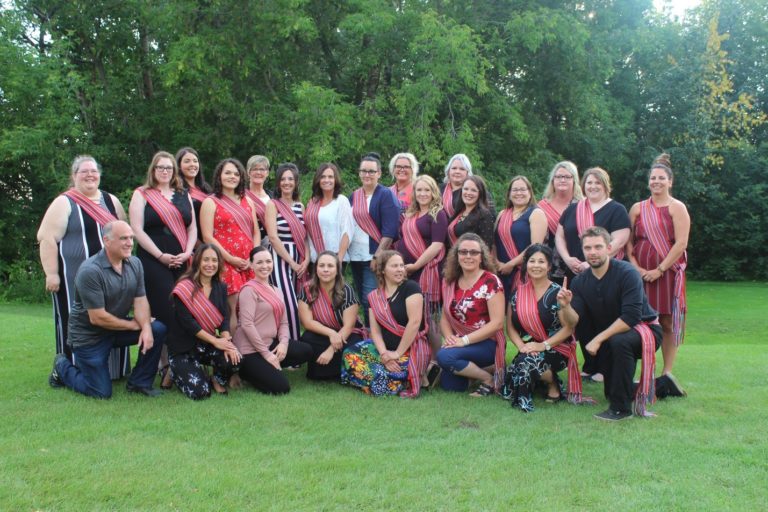
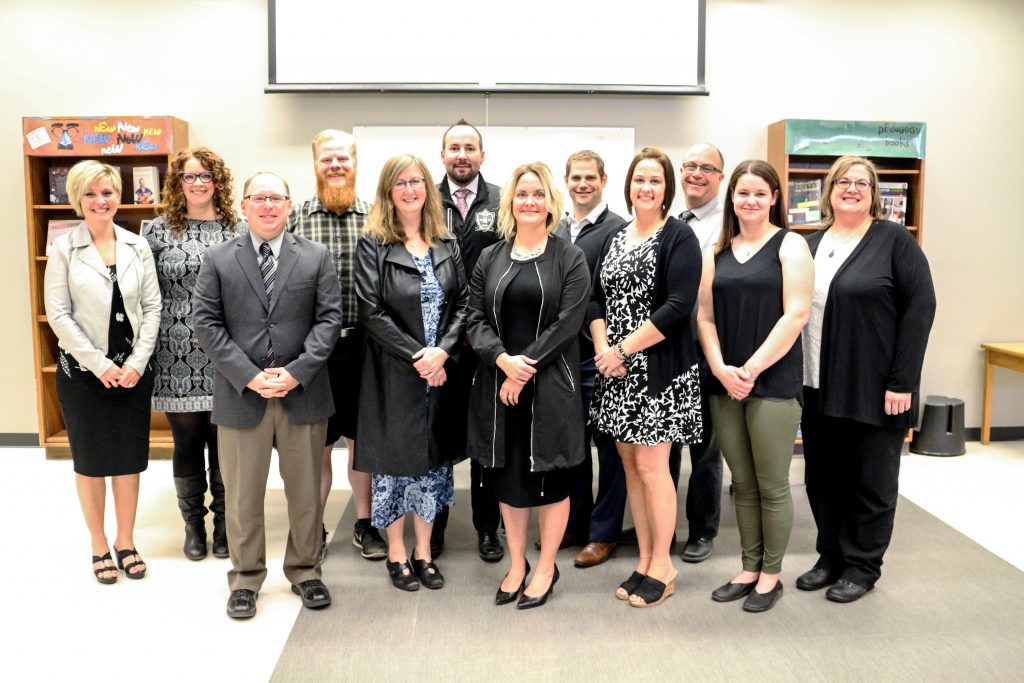
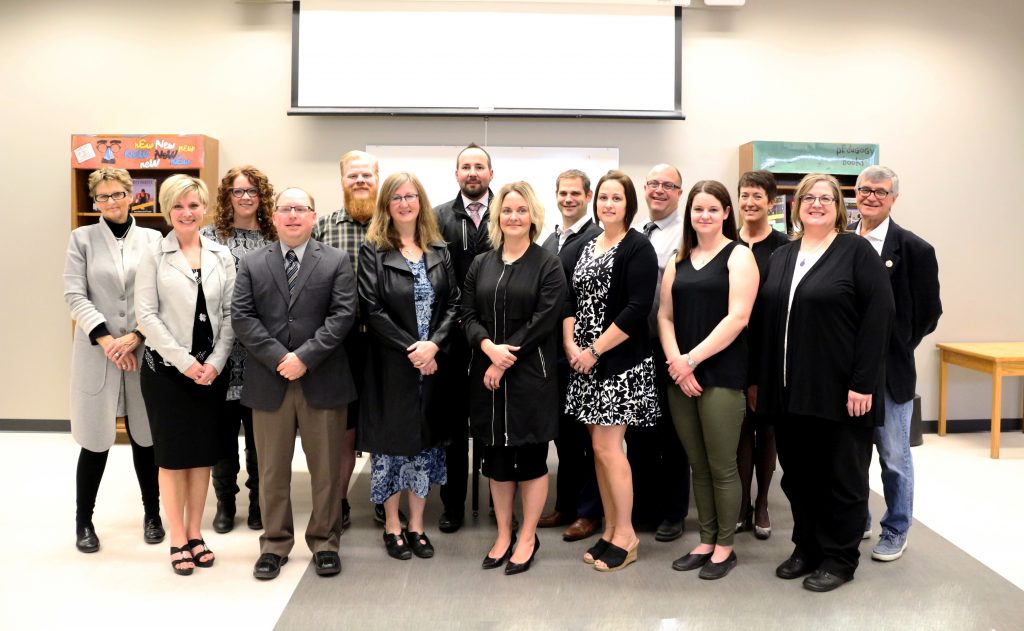
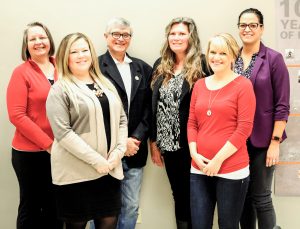
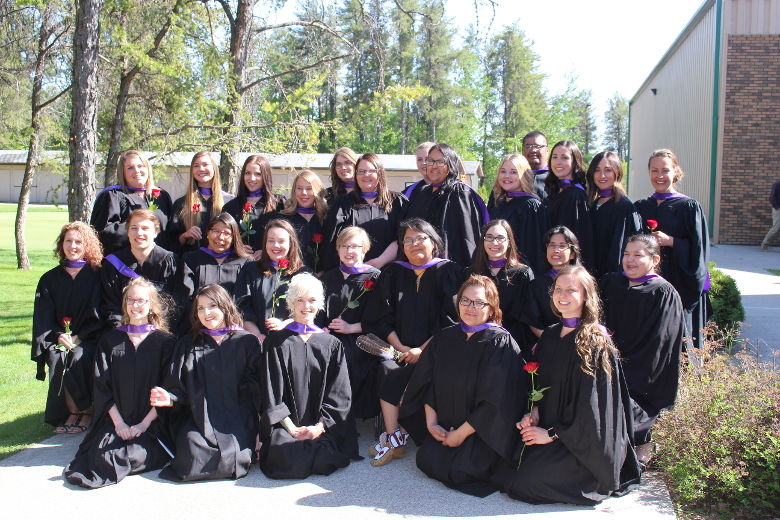
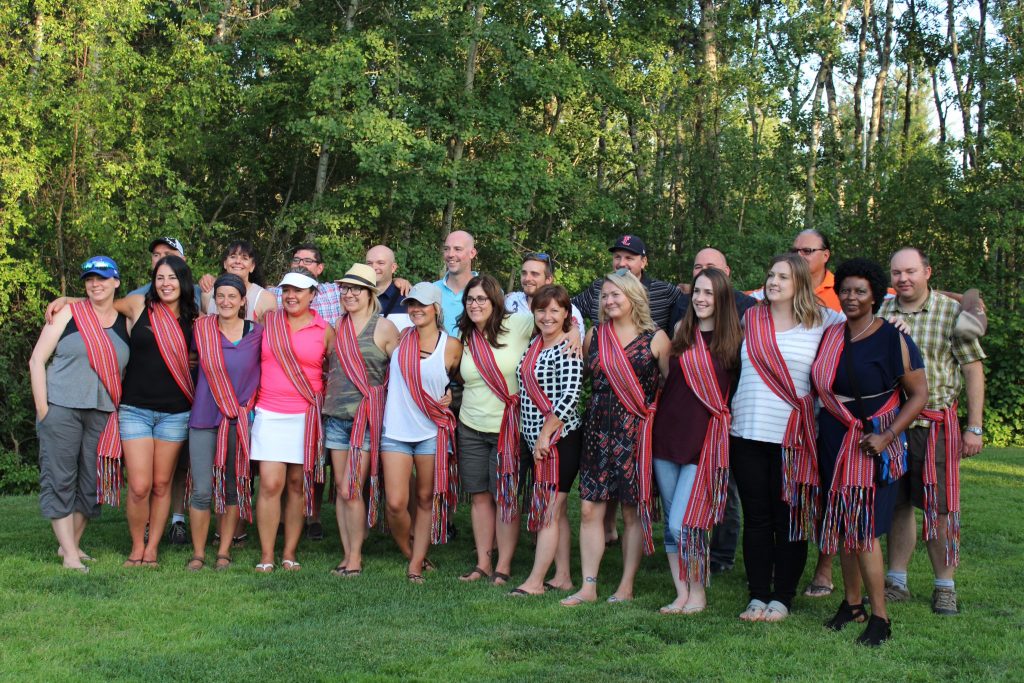 GDI MASTER OF EDUCATION STUDENTS HOLD GRADUATION BBQ
GDI MASTER OF EDUCATION STUDENTS HOLD GRADUATION BBQ